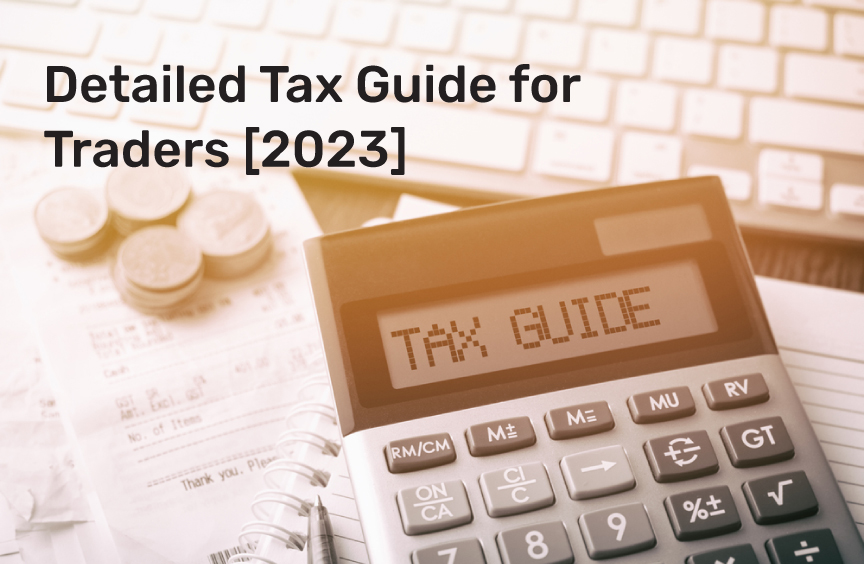
Detailed Tax Guide for Traders [2023]
Taxes are unavoidable for the traders like any other type of business. Traders basically do stock buying and selling in the stock markets. Whatever profits are made in the trading, they are subjected to pay the taxes like any other type of business.
The taxation for traders in India is a little complicated in nature and you need to have proper knowledge to deal with it accordingly. The intraday traders in the stock markets are taxed in the same way as the investors here. The long-term and short-term gains in income taxation for traders matter a lot.
If you are doing Futures and Options trading then you need to consider income/loss while filing the taxes. The tax on options trading in India is tedious due to the nature of transactions done here. Here, we provide you with a detailed tax guide for traders in India.
How are gains in intraday trading considered?
Whatever profits you get from intraday trading are considered your income or salary. The income taxation for traders is then applicable as per the slabs you fall as per the income. These gains from the trading are basically considered under the business income.
The income earned in the trading activities is categorized accordingly:
1. Capital Assets
- Long-term capital gains (LTCG) including losses
- Short Term Capital Gain (STCG) including losses
2. Trading Assets
- Speculative Business Income
- Non-Speculative Business Income
Rules as per taxation for traders in India:
The business income of both speculative as well as non-speculative is added to the salary and other sources of income. To understand the income tax applicable, we need to consider the type of income accordingly.
Here is a detailed discussion of the income and loss gained:
- Intraday/Day trading stocks
The person doing intra-day trading is considered the trader. The income gained from intraday trading is settled without delivery, so it is considered as speculative business income. Ultimately, it is considered under the business income for the trader. The loss in this type of trading is considered a speculative loss.
- Futures and Options
In futures and options, the loss cannot be categorized under the aspects like bank interest or rental interest. For tax on options trading in India, you can deduct the expenses like any other type of expenses in the business.
In futures and options, the loss cannot be categorized under the aspects like bank interest or rental interest. For tax on options trading in India, you can deduct the expenses like any other type of expenses in the business.
Difference between speculative income and non-speculative income
One of the important aspects for traders in India is that all the income gained is categorized under speculative income. The main reason for considering it speculative is that there is no delivery of the shares.
If the buying first then selling or selling first then buying happens in two different days then the income is considered as non-speculative.
Turnover for traders
For the calculation of the turnover, it is important to consider the traders on the delivery basis. It is calculated either scrip-wise or trade-wise to ensure proper taxation is done.
For the calculation of the turnover, it is important to consider the traders on the delivery basis. It is calculated either scrip-wise or trade-wise to ensure proper taxation is done.
Meru Accounting provides outsourced services of income taxation for traders in India. They have an expert team with immense knowledge of trader taxation. They have relevant software that can make proper calculations of the trading income tax. Meru Accounting is a proficient accounting service-providing agency around the world.
